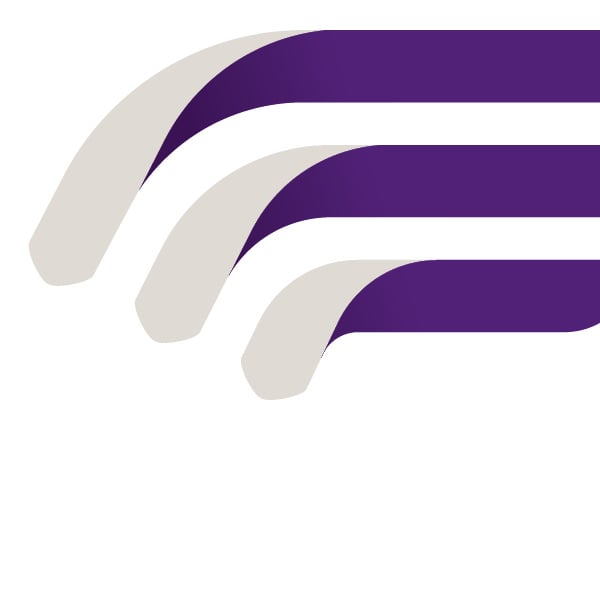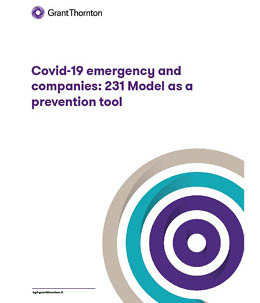-
Transactional advisory services
Find out more about the transactional advisory services of Grant Thornton Financial Advisory Services
-
Valuations
Find out more about the valuations services of Grant Thornton Financial Advisory Services
-
Mergers and acquisitions
Find out more about the merger and acquisition services of Grant Thornton Financial Advisory Services
-
Forensic and investigation services
Find out more about the forensic and investigation services of Grant Thornton Financial Advisory Services
-
Recovery & reorganisation
Find out more about the Recovery & reorganisation services of Grant Thornton Financial Advisory Services
-
Business risk services
Find out more about the business risk services of Grant Thornton Financial Advisory Services
-
Business consulting
Find out more about the business consulting services of Grant Thornton Financial Advisory Services
-
Capital market
Capital market
-
Corporate and business tax
Find out more about our corporate and business tax services.
-
Direct international tax
Find out more about our direct international tax services.
-
Global mobility services
Find out more about our global mobility services.
-
Indirect international tax
Find out more about our indirect international tax services.
-
Transfer pricing
Find out more about our transfer pricing services.
-
Litigation
Our lawyers and accountants can manage all defense measures provided not only by the Italian law, but also by EU regulations and conventions
-
Family business
Find out more about our Family business services.
-
Legal
The client can be assisted in every need and with the same care both on important operations or disputes and on simple matters

-
Back office outsourcing
Find out more about our Back office outsourcing services
-
Business process outsourcing
Find out more about our business process outsourcing services.
-
Compilation of financial statements
Find out more about our compilation of financial statements services.
-
Tax compliance
Find out more about our tax compliance services.
-
Electronic invoicing
Find out more about our electronic invoicing services
-
Electronic storage
Electronic storage is an archiving procedure that guarantees the legal validity of a digitally stored electronic document
-
Revaluation of corporate assets
Find out your civil and fiscal revaluation of tangible, intangible and financial assets
-
Payroll
Complete and customized payroll service, integrated with digital solutions and compliant with Italian and international regulations.
-
Labor consultancy
We help Italian and international companies manage all aspects of their workforce.
-
HR & Payroll Advisory Services
We review contracts, payroll, and risks for extraordinary transactions and we assess tax, labor, and safety risks in outsourcing contracts.
-
Extended services
We provide integrated digital tools to simplify HR management.
-
HR Infinity Portal
The HR Infinity Portal is Zucchetti’s platform designed to centralize communication between the company and its employees.
-
Cybersecurity
GT Digital helps clients structure information security management internal functions, also through partially or totally outsourced functions
-
Agile and Programme Management
GT Digital provides support in the adoption and implementation of different portfolio management
-
Robotic Process Automation
Our “BOT Farm” can rely on digital workers able to help clients in routine activities, allowing employees to deal with more added-value activities
-
Data strategy and management
GT Digital can support clients in seizing the opportunities offered by Big Data, from the definition of strategies to the implementation of systems
-
Enterprise Resource Planning
We support clients in selecting the most appropriate ERP System according to their specific needs, helping them also understand licensing models
-
IT strategy
GT Digital supports clients in making strategic choices, identifying innovation opportunities, comparing themselves with competitors
-
IT service management
We can support with software selection and with the implementation of dedicated tools for the management of ICT processes
-
DORA and NIS 2
The entry into force of the DORA Regulation and NIS2 represents a major step towards the creation of a harmonised regulatory framework
231 model as a prevention tool
The Covid-19 emergency certainly represents the greatest global health crisis in the 21st century and will lead to important changes, not only in our lives, but also in the economic and juridical systems of any country. An important aspect to be considered, among the other ones, is the impact that this epidemic will have on those systems provided under Legislative Decree no. 231/2001, where the organization, management and control model (MOGC) implemented by the Company represents the reference tool for a prevention policy.
Specifically, pursuant to art. 42 of Law Decree no. 18 dated 17.3.2020, the Covid-19 infection contracted “during the working activity” represents a work accident basing on the Italian Act on occupational safety and health (Legislative Decree no. 81/08). This means that the risk of infection represents a new high-intensity biological risk and requires the implementation of proper measures to also prevent crimes under art. 25 septies of Legislative Decree no. 231/01, since the Company’s liability could derive from the breach of regulations on occupational safety and health.
Therefore, if the company does not promptly implement the necessary measures to ensure social distancing – i.e. smart working when possible, shift working, elimination of physical meetings among colleagues, unnecessary displacements, reconfiguration of spaces for prevention purposes – it could also be liable for involuntary manslaughter, as it could have continued its activity and saved the costs required to make the necessary changes to avoid the epidemic.
However, there are further repercussions, since there is the risk that Covid-19 could spread within companies without them to have the proper measures to prevent infection, or that Covid-19 becomes the condition for the commission of further crimes listed under Legislative Decree no. 231/2001, again giving rise to criminal liability on the company. But what are the crimes that could arise from the exploitation of the current critical situation?
- Illicit receipt of funds, fraud to the prejudice of the State or a public entity or aimed at receiving public funds, computer fraud to the prejudice of the State of a public entity (art. 24 Legislative Decree no. 231/2001): these kind of crimes could increase in the relationships with the State or Public Administrations, e.g. breaching the rules to benefit from temporary State layoff funds;
- Cyber-crimes and illicit data processing (articles 24-bis of Legislative Decree no. 231/2001): Smart working totally carried out through electronic tools can create an occasion to commit digital and computer crimes;
- Industrial and commercial crimes (art. 25-bis1 Legislative Decree no. 231/2001): these can arise due to the need for specific categories of goods, which must have specific features (i.e. fraud in trade);
- Corporate crimes and market abuse (articles 25-ter and 25-sexies Legislative Decree no. 231/2001): these can be relevant for the purposes of true corporate information, both for listed and for non-listed companies;
- Tax crimes (art. 25-quinquiesdecies Legislative Decree no. 231/2001): the company shall carry out a careful evaluation of risks, since some deductions and allowances could be requested lacking the necessary requirements.
Considered the above, the health emergency caused by the spread of Covid-19 forces those Italian companies that have already implemented a 231 organization model to further review the adequacy of their administrative liability control systems under Legislative Decree no. 231/2001, so they would need to:
- Update and monitor the entire company’s internal control systems;
- Carry out an audit activity, e.g. on occupational safety and health, on cyber security, on relationships with Public Administrations, etc.;
- Ensure a constant flow of information between the workers' health and safety representative (RLS), the Supervisory Board, and management and control bodies (i.e. BoD, Sole Director, Board of Statutory Auditors, internal audit committee);
- Ensure proper flows of information to and from business functions in charge of containing the spread of the virus (i.e. Head of the HR department, Head of the legal department, etc.), people in charge of risk management (e.g. employer, company doctor, Health and Safety Officer (RSPP), people in charge of first-aid intervention, etc.), as well as the committee - if any - in charge of the application and assessment of corporate protocols for the prevention of virus spread in working environments.
In this emergency phase, the Supervisory Board plays an essential role, as it is responsible for assessing the adequacy of organizational models, supervising their observance and ensuring that these are updated and that a proper training on risks and on established protocol is granted.
The Supervisory Board must be promptly informed on the initiatives and relevant prevention measures adopted (and/or that are about to be adopted) in order to mitigate the risks related to Coronavirus and must promptly inform the Board of Directors of any identified critical issue, in order to favour an immediate action.
If a company has not yet implemented a system under Legislative Decree no. 231/2001, it is strongly recommended, more than ever in this phase, to implement an Organization, management and control model and to appoint a Supervisory Board, because the implementation of organizational rules, control protocols and codes of conduct help avoiding - or at least reducing - the risk of committing crimes, as well as safeguarding employees also from the biological risk they are exposed to during their working activity.

